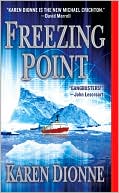- Some people didn't accept the findings of the video, which I happen to believe is well researched. You're welcome to watch it and draw your own conclusions.
- Several people noted that while our audience is undoubtedly changing, our principal message as writers remains the same. Again, that's open for debate, but I'm interested in your take.
- A few people brought up the intersection of technology with the task of modern-day writers: whether that be putting words on the page or the beast we call publicity/promotion.
What do baseball teams and breakout novels have in common?
I’ve become something of a baseball fan recently—and not ONLY because the Texas Rangers are in the pennant race. It’s exciting to hear the crack of the bat, sit in the stands and cheer, watch the fireworks each time Michael Young smashes a homerun.
Writing is a little like baseball. You want to hit one out of the ballpark, but doing so requires focus and determination. In truth it probably requires more than merely writing an excellent book. We also need to know what TOMORROW’s readers will want to read.
How much time do you think passes by the time I write an 80,000 word manuscript, send it to my agent, she sends it to a few publishers, they get in a bidding war over it, a contract is signed, and I’m given a slot? I’m a quick writer—some people say I’m obsessive-compulsive, but I find that terminology harsh. Best case scenario for me is six months to write, then another six months from agent through contract negotiations. At that point we can tack on another twelve to eighteen months for production before the book actually appears on a shelf—if things go well.
So when I open up a brand new document, as I did last week, and begin a sparkling new story—I need to envision what readers will want to read two to three years from now. What will seem fresh and exciting to them?
Have I mentioned that writing rocks? It certainly does. I love it, and I’m awed by the entire process.
This idea of envisioning what my reader will want to read in two to three years is a bit daunting though. Some days I feel as if I’m attempting to write science fiction. The enormity of this task was brought home to me this week when I was directed to the following video.
It’s entitled “Did You Know?” I’ve watched it five times now, and I’m still fascinated. Researched and designed by Karl Fisch, Scott McLeod and Jeff Brenman, I believe there’s something there for most everyone—but certainly for anyone trying to communicate. To date, it’s received over 2 million views on youtube. So even though it wasn’t designed for writers, I think it bears a little attention in this discussion.
Part of our job includes envisioning our audience. I write romantic thrillers, a wonderful blended genre—and one that is constantly changing, both in content and in readership. As I watched the video, quite a few items jumped out at me (and the song is catchy too). For instance, I learned—
- China will soon be the #1 English speaking country in the world
- 1 of 8 couples married in the U.S. last year met on-line
- There are over 200 million registered users on MySpace
- There are approximately 540,000 words in the English language today, five times as many as there were during Shakespeare’s time
WOW! Each one of those facts astound me, and they each change the picture in my head when I envision my reader and my novel which will appear on the shelf in two years. (Okay, maybe not the last fact, but it is very cool and gives me pause each time I choose a word.)
I also think Fisch/McLeod/Brenman do well when they end their video with “So What Does It Mean?” They don’t even attempt to interpret their findings, but rather leave it to their viewers.
So how did I interpret what I saw? I immediately started thinking about my readers . . . the ones in 2012. The ones who will be reading the book I just started writing. The video reminded me that instead of becoming caught up in minutia such as whether my book will appear in hardback, paperback, ebook, Kindle, or on someone’s IPhone . . . perhaps a wiser use of my time would be to spend it considering my reader’s background. What do they consider a romantic gesture? Will they recognize my male lead as heroic? Can they buy into the basic premise I’ve so carefully laid down on page one and will it thrill them in the way I intended?
I believe romance in its truest form doesn’t change. When you strip away the trappings of our time—technological and societal—romance remains the same. I teach collegiate age young adults, and they still love a good story. The question for me is whether as a writer I have the ability to catch and hold their attention long enough to place my tale of love in their hearts and minds.
As authors, when we do that, we’ll have earned ourselves loyal readers. Kind of like true baseball fans—ones who stick with their teams through good seasons and bad.
I’m interested though. What do you think of when you picture TOMORROW’s readers? Are they different from today’s readers, or pretty much the same? Does technology change our conception of romance or the things we fear? And does it, or should it, change the way we write?
~Drue
The Cost of Love, will be published by Five Star Press in March, 2010. For more details visit http://drueallen.com/.

.jpg)








